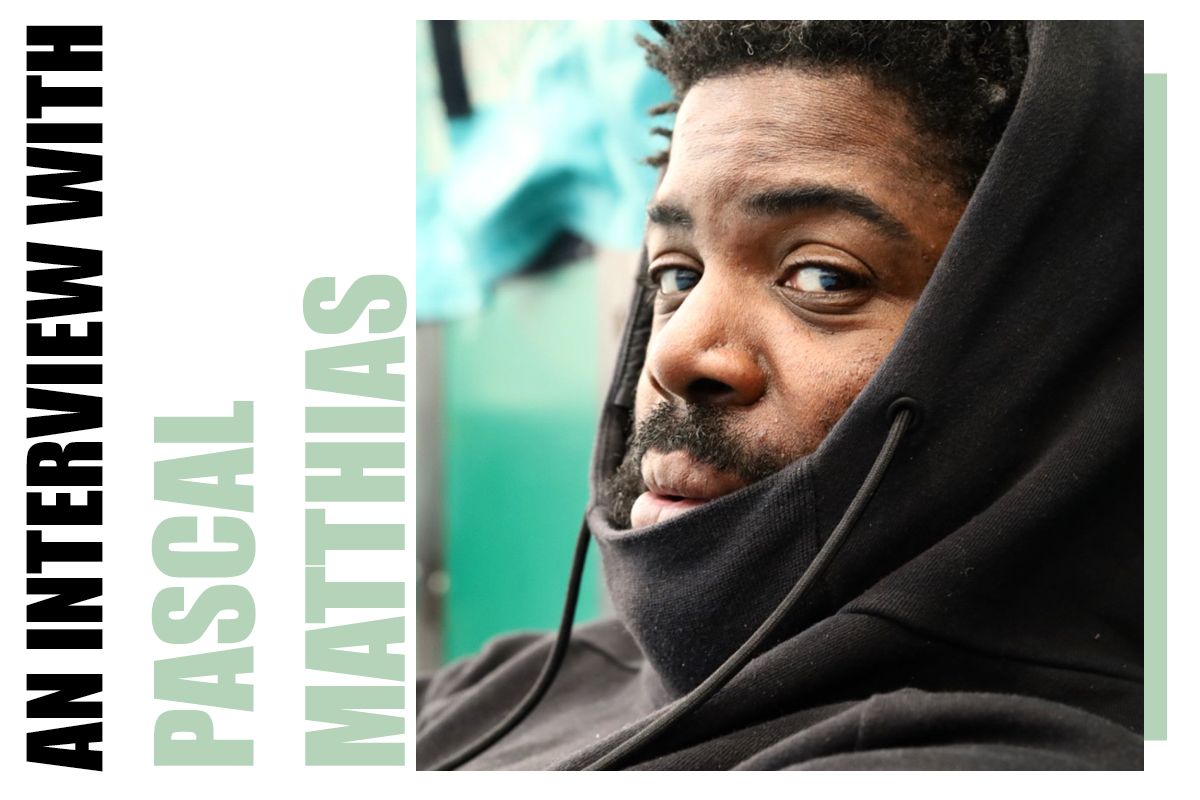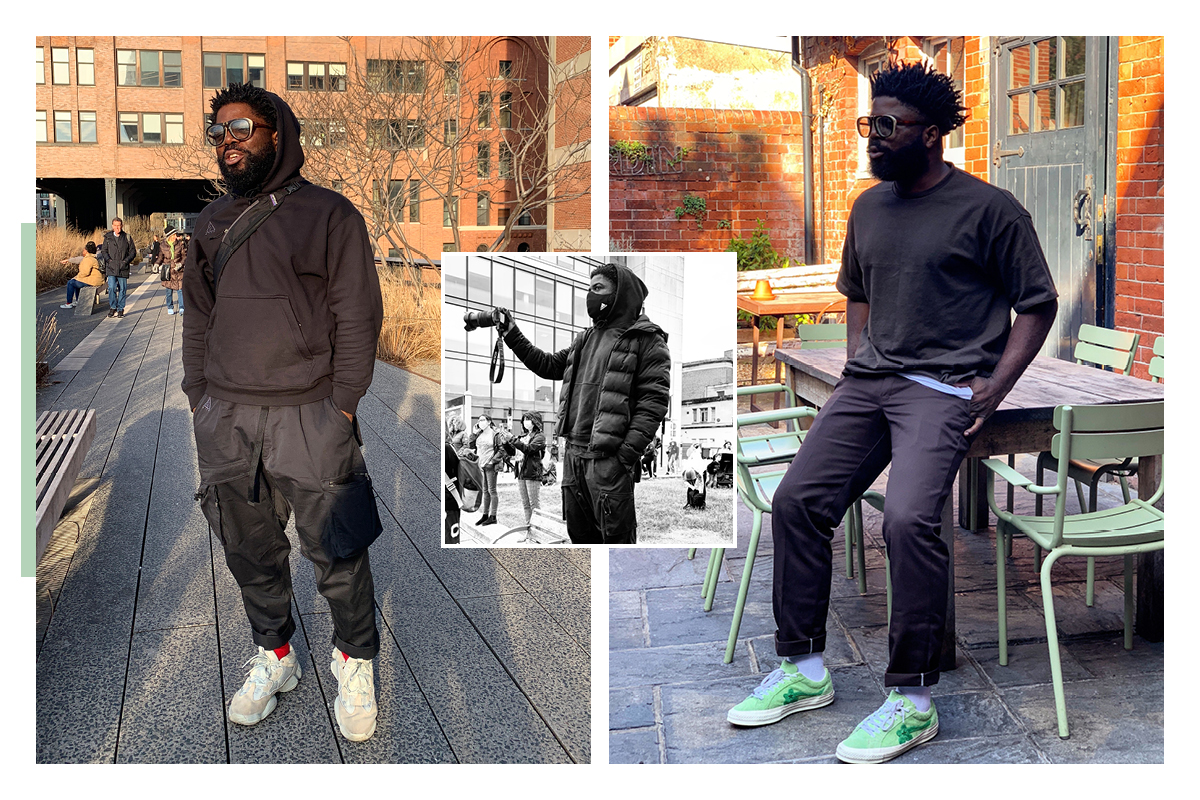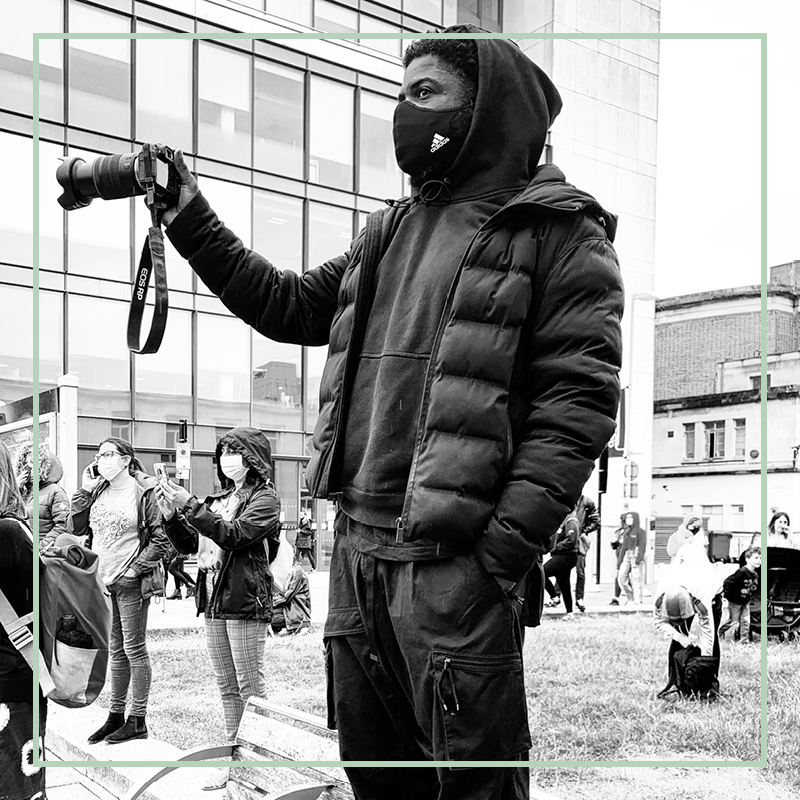
It would have been really easy for our relaunch to change all of our planned content to ensure we were “ticking boxes” like so many outlets in fashion are doing right now. However – as a woman of colour – I thought it was more important to have real conversations instead of token ones. To be able to feature Pascal Matthias – Designer, Consultant and Senior Teaching Fellow – I hope proves more insightful, and educational than any quick fix I could have otherwise provided.
Pascal, firstly – how are you?
I am well thank you. With all of the abnormalities of this year and under all the circumstances I am healthy and good.
For those who don’t know, what do you do – and what has been your journey in to fashion?
I have worked I fashion for nearly 20 years they have been divided between working as a designer for the first ten years and then working as a University lecturer.
The journey was not orchestrated or planned. I had always wanted to work in film. It still remains a love. I draw from storytelling and characters through my work today. I see my fashion journey as an evolution and expression.
Back when I was making short films and commissions it was very slow. It was just at the beginning of the move from film stock to digital. I think if I had been making films now I would have stayed with it. However, I took my understanding and knowledge of how to tell stories with characters for an audience or consumer and started designing and customizing one off pieces.
It was really successful, and I had clients all across the country and the US. I also started working with Topman. Topman at the time were leaders of fast fashion on the high-street. I was eager to reach the largest audience without making sacrifices creatively, Topman allowed me to do this. In a few weeks of having meetings with Topman I established my range in the Oxford circus flagship store selling my designs under my own name brand label.
Fashion is so immediate I’m grateful it has allowed me to spread my message quickly to a wide audience. This was largely before social media. I went onto work for the streetwear brand UCLA whilst still freelancing for Topman, Ted Baker, Ecko Unlimited and other brands.
In 2009 I decided I wanted to find a better work life balance and spend more time with my children who were young at the time. I decided to turn to lecturing as it was something that I thought would be rewarding. I started lecturing in fashion design and continued to freelance. I had more time to attend parents’ evenings and sports days which are so important to me.

What does fashion mean to you?
Fashion can epitomise hope. Fashion is not intellectualised as much as the other arts. Fashion is more commercialised than intellectualised. I feel this is changing in small circles, but fashion needs to elevate itself to have more meaning than the endless cycles of clothes. Fashion has reached an apogee which is not sustainable, environmental all socially responsible. I have always been interested in responsible fashion to a mass audience. The immediacy and power fashion possesses lies in its ability to convey a person’s inner most thoughts and beliefs through fabric, form and functionality of the garment. On the flip side fashion has a social and environmental obligation.
I am very interested in streetwear which identifies historical identities of blackness. Functionality and personality of streetwear allows an expression. Streetwear does not allow itself to be compartmetnalised. Fashion generally rather than being expressive can be restrictive. Both structurally, creatively and visually. However, Streetwear allows you to be whoever you want to be. It encourages the wearer to experiment and blurs the lines between ‘menswear and ‘womenswear’. You can style clothes as you want, the parameters and paradigms are less robust and structured. Hence, you can juxtaposition fabrics, colour and it doesn’t really matter. I think that personifies hope. You can take an outerwear material and put it on the sneaker. Or a leather monogramed handbag fabric like Dapper Dan does and transform it into an amazing coat.
I believe this is why streetwear is where you will find more designers of colour. It is diverse in its very nature. Creatively, historically and structurally.
Streetwear for me, is where diversity and progressive hope reside. More Black fashion brands must establish themselves. This is slowly happening in both the luxury and traditional streetwear spaces.
A note from Sabina: In the time that we had intended to re-launch ACCESS FASHION so much has happened. Firstly, COVID and then the brutal killing of George Floyd. It would have been really easy for us to sit down and re-plan our launch with a diversity structure in place, but I’ve always believed in authenticity, so we’ve decided to stick to our launch plan, which was ‘inclusive’ from the start. I actually first launched AF because at the beginning of my fashion career my white University friends were getting job offers with no experience, but even after a stint at Harper’s under my belt, people weren’t even taking note of my CV. I was excelling in the freelance world of styling, but in fashion publishing, I couldn’t seem to get a step higher up the ladder. My gut told me that if my name were Sabina Smith and not Sabina Emrit, I would’ve been offered those same opportunities as my friends. I can never prove that to be the case, but I trust my gut. So, I started AF as a way to give myself a platform to be heard for my writing and styling abilities and didn’t put my name to it for a year. And it thrived.
Do you feel you’ve had to work harder for your career because of the colour of your skin?
Yes, without a doubt.
Any Black or person of colour will find barriers of entry within the fashion industry. Barriers are even more pronounced for black women or women of colour, the double oppression of women is that of race and femininity. Black and POC women are heavily appropriated but not reflected within the fashion industry as designers or owners. It is an issue for anyone of colour trying to work within fashion. I see black culture referenced and that’s where it stops.
It is starting to change. Real changes in the business structures must occur. Brands like Pyer Moss, A Cold Wall, Fenty and Wale Bbonner are so important. Yeezy and Virgil Abloh at LV are highlighting and demonstrating that black people in fashion can be both profitable and creatively successful.
What is your advice for anyone looking to engage with, promote or feature a black person or people of colour in fashion? I’d really like to know your thoughts or how to be authentic in this journey.
Instagram works on the basis of self-promotion. This makes it very difficult to decipher the other side of Instagram which is informative and educational. There are many good platforms which talk, engage and promote Black people in fashion and otherwise. On the other hand, there seems to be an increase of Brands and individuals using platforms to stand in solidarity whilst surreptitiously looking at gaining good favor. What I mean by that is people will invest on certain topics which construct them to appear empathetic and compassionate whilst simultaneously benefiting from promoting black social issues. That means that the work that needs to be done is not being done and comes across performative. The Black square movement on June 2 was one such movement. So many people posted Black squares but there was a lack of understanding of exactly what needs to be done going forward to stop the senseless murders of Black and brown people at the hands of the police.
People looking to engage must first do the work themselves. Fully immerse themselves in understanding structural, systemic systematic oppression of black people within education, the workplace and wider society. Although many people may be well-intentioned this year has demonstrated a need to step up. Intention is no longer enough. This is not a problem for today. It is a problem for yesterday and the decades before. What have brands been doing? Why has it taken till now to ‘learn’?
In my 10-point plan I compared racism to Covid-19. This post was shared by tens of thousands. I don’t even know how many exactly. I saw it everywhere, but my point was to ensure that a process should to be used to understand how to engage, that process must be meaningful and purposeful.
- Assume that you have it
- Assume you that you are asymptomatic
- Change your behavior.
- Change your language.
- Listen.
- Continue meaningful conversations.
- Acknowledge the past.
- Read.
- Love.
- Vote.
We have entered an era amongst fashion and the arts (especially it seems) where the words diverse, diversity and representation are everywhere… I’ve always had a problem with those words and at the moment they feel like current trends. I’d love to know your thoughts on the language that is being used right now? Do you think it’s positive growth for black people and people of colour?
Diversity and inclusion are ubiquitous buzzwords in the fashion industry currently. There is no one consensus of what diversity, inclusion or even equality pertain to.
In a way systems and structures as well as language, I believe are purposely created to be opaque. Discussions about what diversity means have to be conducted before diversity is even discussed properly to benefit an institution, brand or organization.
To me it’s very simple. Diversity means the process. Inclusion means the application of that process; inequality means who are the main benefactors. So, to have diversity in an organization you may say you want 30 or 40% of your organization to be from a black, Asian or other ethnicity. The problem is many companies don’t even know what sort of diversity there looking for. Diversity is also intersectional. Brands struggle at being diverse. They must ask whether they have considered gender diversity? Have they included less able-bodied diversity? LGBTQ+AI diversity? The term has become problematic.
In all cases an organization should look to have policies that are not bias or racist obviously. The harsh reality is policies and procedures have existed for years that may be bias, and nothing is done because it does not directly affect those in power. Constant investigation and monitoring of processes and policies are needed in every business. The recent GCSE and A level the debacle are cases in point.
The examinations exposed that the algorithms and decisions were not inclusive and led to inequalities that benefited people in certain areas, certain races & class levels. Diversity, Equality and Inclusion must be embedded into every business. A Culture must be motivated by every individual that makes up the organization. We must be long past small steps, pretending and performative measures.
Is enough being done?
No.
Nowhere near enough is being done. Not close. The reason being decision-makers within organisations feel they are not directly affected by the lack of diversity. If you look at the NBA boycott of games last week you will see the challenging of dominant ideas around Black athletes. What the NBA players are saying is that ‘we do have a voice and we’re not commodities’. They play in a billion dollars industry. Because they are rewarded financially does not mean they do not want to see equality throughout the United States. I think what is often missed is how close-knit the black community is. The media news would like to talk about black-on-black crime and deconstruct and fragment a sense of a black togetherness, but this past year Black people have never been closer. In fact, in times of struggle, Black people congeal and this needs to happen more. More needs to be done in society so that they actually make it near impossible for bias to exist. There will still be individual racism, but structural racism is calcified in the media and brands so institutions must begin with anti-racism training and consistent monitoring of equality measures. There should be greater investigation and analysis of diversity, recruitment and marketing policies.
What are your thoughts on diversity hires?
Painful and performative. It allows the bias policies and procedures as well as a bias culture to exist simultaneously. In a way bias hiding in plain sight.
If you look at it like this if you have a team and the team is all white for example then there is an extreme problem with the recruitment policies, the culture and the processes that have created that structure of having an all-white team. Diverse hire to somehow be more reflective and representative does not even begin to investigate the mechanics and metrics that have created and allowed to establish that team in the first place.
It’s only with investigation like previously mentioned that bias or racism will cease to exist. Diversity hires are again more functional for an oppressive regime. They work only to protect the structures that benefit the majority. What diversity should aim to do is to ensure structures don’t exist as they currently are. Structures must be more transparent and inclusive. That means getting to the very core of the issues. It takes work and this is the problem. Many brands feel they can take short cuts. They cannot.

QUICK FIRE QUESTIONS
Favourite quotes you use as a go to or reminder
I really don’t have favourites. I think it depends on mood, occasion and time period.
I love everything by Rainer Maria Rilke. I guess two extracts or quotes refer to are these…
Let everything happen to you
Beauty and terror
Just keep going
No feeling is final
And…
Be patient toward all that is unsolved in your heart and try to love the questions themselves, like locked rooms and like books that are now written in a very foreign tongue. Do not now seek the answers, which cannot be given you because you would not be able to live them. And the point is, to live everything. Live the questions now. Perhaps you will then gradually, without noticing it, live along some distant day into the answer.
Favourite Film – I do like North by Northwest. It just had a huge impact on me. I studied Hitchcock and the narrative around identity was really resonates with me to this day. I also love old European and classical American films. I did recently see ‘When they see us’ about the Central Park Five. Dove young black boys were convicted of a crime they never committed. I cried like a baby in the finale episode. It’s a four-part series on Netflix.
Favourite food and drink – I don’t really drink. Food would be anything West African by my mum. Food is a great indication of practices and culture. I love Okra leaves.
Favourite place to visit – New York, California or Italy. I literally cannot separate. I travel with my family (or did) and we love these places.
Favourite song for a feel good mood – I can only say the last song I played. Summer Friends… Chance the Rapper. He’s a good mood artist.
Favourite Book – Book is impossible to choose. Bible tops the list.
Follow Pascal via his Instagram. It’s a must.
